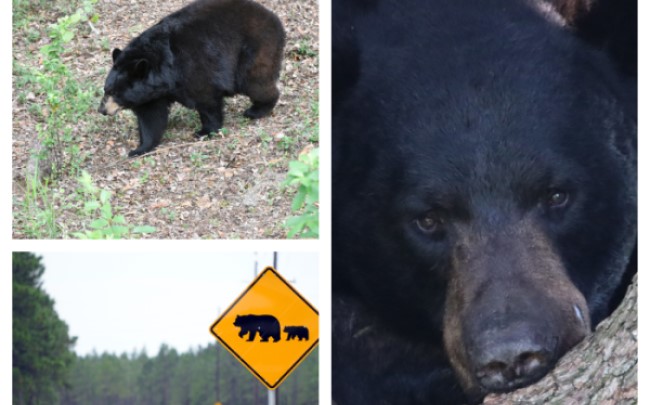Adventure
This Fall, Ask Yourself: Am I BearWise Or BearDumb?

Unless you live in the Castro District, in which case you may feel free to ignore this advice.
The main thing to know about bears is that they are Nature’s Sherman tanks.
Over, under, around, or through: If a bear wants to get there, it will. With autumn approaching, the nation’s black bears are more active in search for food, and they’re very serious about it. The problem with that is that, although bears aren’t normally aggressive towards people, bears that have become used to humans absolutely can be … and that usually means that the bear in question will need to be put down. You can help prevent this by following BearWise practices.
During the fall, bears start consuming more calories to pack on fat reserves for the winter, even if they are not hibernating. By calories, we mean CALORIES: 20,000 a day. Any accessible food source, such as unsecured garbage, pet food or bird seed, can be enticing to a hungry bear preparing for the winter, potentially drawing them into conflict with people.
“If given the opportunity, bears will take advantage of easy meals from things including unsecured trash cans and bird feeders. However, if bears don’t find a food source in a neighborhood, they’ll move on,” said the Florida Wildlife Commission’s Bear Management Program Coordinator, David Telesco. (Yes, Florida has bears. Most states do.)
You can avoid attracting bears to your neighborhood and help prevent negative interactions with bears and other wildlife by following these six BearWise Basics:
1: Never feed or approach bears
- Feeding bears can make them lose their natural fear of people.
- It is illegal in most places to intentionally feed bears or leave out food or garbage that will attract bears and cause conflicts.
- Getting close to a wild animal is dangerous.
2: Secure food and garbage
- Store garbage in a sturdy shed or garage and then put it out on the morning of pickup rather than the night before.
- If not stored in a secured building, modify your existing garbage can to make it more bear-resistant or use a bear-resistant container.
- Secure commercial garbage in bear-resistant dumpsters.
- Protect gardens, beehives, compost and livestock with electric fencing.
- Pick ripe fruit from trees and bushes and remove fallen fruit from the ground.
3: Remove or secure bird feeders
- Remove bird feeders where bears are present.
- If bird feeders are left up, only put enough food out for birds to finish eating before dark.
- Use other options to attract birds, not bears.
4: Never leave pet food outdoors
- Feed pets indoors.
- If feeding pets outdoors, only put food outside for short time periods and bring in leftover food and dishes after each feeding.
5: Clean and store grills
- Clean and degrease grills and smokers after each use.
- If mobile, store them in a secure shed or garage.
6: Alert neighbors to bear activity
- If you see a bear, let your neighbors know.
- Share tips on how to avoid conflicts with bears.
- Encourage your homeowner’s association or local government to institute bylaws or ordinances to require trash be kept secure.
While black bears generally are not aggressive, they can injure people and pets. Dogs can trigger defensive behaviors from bears; 60% of incidents where bears injured people in Florida involved dogs. When walking dogs, keep them close to you – preferably on a non-retractable leash – and be aware of your surroundings. Before letting your dog out at night, flip lights on and off and bang on the door to give bears and other wildlife a chance to flee.








